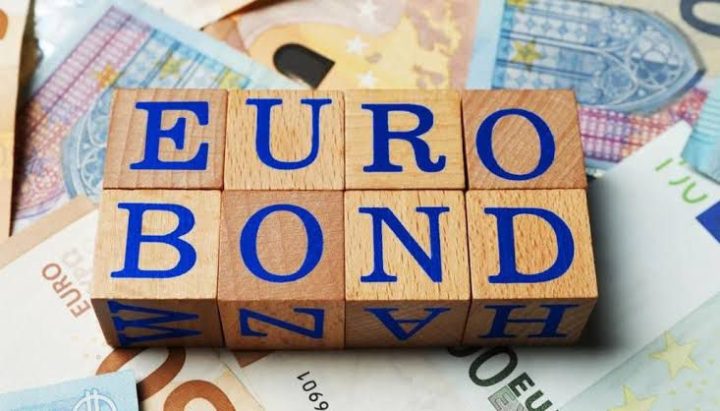Nigeria’s successful $2.25 billion Eurobond issuance has renewed investor confidence in the country’s economic management, signaling a strong vote of confidence in the fiscal and monetary reforms introduced by President Bola Tinubu’s administration. The bond, which was oversubscribed by more than 400 percent, marks Nigeria’s first major foray into the international capital market in years, attracting interest from global investors despite lingering concerns about inflation, debt sustainability, and exchange rate volatility.
The Federal Government raised the funds through a dual-tranche offer consisting of 10-year and 20-year bonds, priced at yields of 9.125 percent and 9.625 percent respectively. The debt sale, coordinated by the Debt Management Office (DMO), forms part of the government’s financing plan to fund budget deficits, refinance maturing obligations, and support key infrastructure projects aimed at spurring growth and stabilising the economy.

According to the DMO, investor demand was robust, with total bids exceeding $10 billion, reflecting renewed confidence in Nigeria’s credit outlook. The strong participation by institutional investors across Europe, the United States, Asia, and Africa is being seen as evidence of global optimism about Nigeria’s ongoing economic reforms, particularly in the areas of fiscal discipline, revenue generation, and exchange rate unification.
Finance Minister and Coordinating Minister of the Economy, Wale Edun, described the outcome as “a reaffirmation of Nigeria’s standing in the international financial community.” He noted that the proceeds from the bond will be judiciously utilised to support infrastructure investment, social programmes, and economic diversification efforts. “The overwhelming investor response is a testament to the confidence in the Tinubu administration’s reform agenda, particularly its efforts to restore macroeconomic stability and rebuild trust in government finances,” he said.
The Eurobond issuance comes at a time when Nigeria’s economy is gradually recovering from multiple shocks, including high inflation, volatile oil prices, and reduced foreign exchange inflows. Economic experts say the oversubscription underscores the growing appetite for Nigerian debt instruments among foreign investors, following recent improvements in fiscal transparency and reforms in the Central Bank of Nigeria’s foreign exchange management.
Market analysts observed that the bond issuance aligns with Nigeria’s medium-term debt strategy, which seeks to balance domestic and external borrowing while maintaining debt sustainability. The country’s debt-to-GDP ratio remains within manageable limits, and the government has pledged to limit non-concessional borrowing while focusing on long-term productive investments.
Despite the positive sentiment, some analysts have cautioned that the government must remain prudent in its debt management practices. They argue that while external borrowings provide short-term relief, Nigeria must improve its revenue base to avoid overreliance on borrowing. Economist Bismarck Rewane noted that, “The oversubscription of Nigeria’s Eurobond shows market confidence, but what matters is how the funds are deployed. If they go into productive sectors like energy, transport, and manufacturing, then the long-term benefits will outweigh the costs.”
Similarly, financial analyst Ayodeji Ebo said that Nigeria’s ability to attract significant foreign capital reflects a turnaround in investor perception. “The fact that investors were willing to commit large sums despite global economic uncertainties shows trust in Nigeria’s reform measures, especially the unification of the naira exchange rate and fiscal adjustments,” he said.
The successful Eurobond also had a positive ripple effect on the local financial markets. The naira appreciated slightly in the parallel market following the announcement, while yields on local government securities moderated, reflecting renewed optimism about Nigeria’s fiscal outlook. The Nigerian Exchange (NGX) also recorded moderate gains, with banking stocks rallying on expectations of improved liquidity and foreign capital inflows.
International observers, including major rating agencies, have taken note of the development. Fitch Ratings noted that Nigeria’s external bond issuance was an “encouraging step” that could help ease near-term funding pressures, provided that reforms continue to improve fiscal consolidation and foreign reserve accretion.
Beyond immediate fiscal benefits, the Eurobond sale is expected to bolster Nigeria’s credibility in global markets, setting a precedent for future issuances. It also positions the country favorably among emerging-market peers competing for international capital at a time when global investors are seeking higher-yield assets amid moderated U.S. interest rates.
The government has, however, pledged transparency in managing the proceeds of the bond. In a statement, the DMO said funds will be channelled strictly into priority sectors, including transport, power, agriculture, and technology. It reaffirmed that the administration remains committed to ensuring that all borrowings are used to finance projects that will generate economic returns and improve citizens’ welfare.
Observers believe that Nigeria’s success in the international debt market will have broader implications for the economy, particularly in restoring investor trust and supporting currency stability. The development, they note, provides a window of opportunity for the government to accelerate reforms that will expand the fiscal space, attract private investments, and boost productivity.
As the federal government continues its reform-driven fiscal strategy, the Eurobond success stands as both an achievement and a challenge. It reflects renewed international faith in Nigeria’s economy but also underscores the urgent need to sustain reform momentum, reduce structural bottlenecks, and ensure that borrowed funds translate into visible economic progress for citizens.
Support InfoStride News' Credible Journalism: Only credible journalism can guarantee a fair, accountable and transparent society, including democracy and government. It involves a lot of efforts and money. We need your support. Click here to Donate
